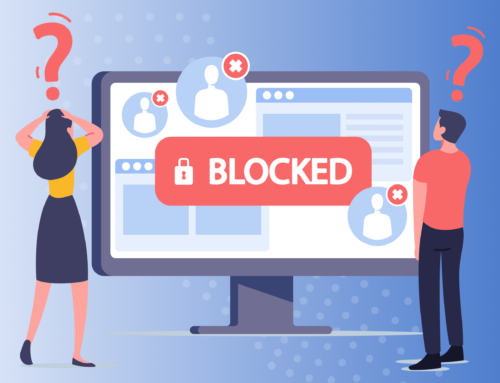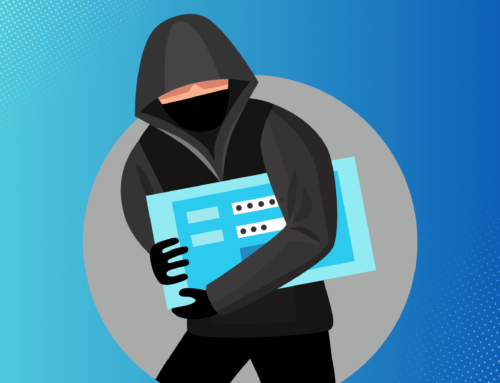In March of 2020, the Department of Health and Human Services (HHS) announced a series of measures to expand Americans’ access to telehealth services during the COVID-19 (Coronavirus) outbreak. The three steps HHS has taken to expand telehealth access include:
- Expansion of Medicare telehealth access and coverage that ensure patients can receive services from their doctors without having to travel to a healthcare facility.
- Providing flexibility for healthcare providers to reduce or waive Medicare beneficiary cost-sharing for telehealth visits paid for by federal healthcare programs, such as Medicare.
- Waiving of potential HIPAA penalties for good-faith use of telehealth during the emergency.
Expansion of Medicare Telehealth Access and Coverage
A range of healthcare providers, such as doctors, nurse practitioners, clinical psychologists, and licensed clinical social workers, will be able to offer telehealth access to Medicare beneficiaries. Under the telehealth access expansion, beneficiaries will be able to receive telehealth services in any healthcare facility, including a physician’s office, hospital, nursing home or rural health clinic, as well as from their homes.
As part of the March 2020 telehealth access expansion announcement, patients will now be able to access their doctors using a wider range of communication tools, including videoconferencing, web conferencing, and telephones that have audio and video capabilities, making it easier for beneficiaries and doctors to connect.
Medicare beneficiaries will be able to receive various services through telehealth, including common office visits, mental health counseling, and preventive health screenings. This will help ensure Medicare beneficiaries, who are at a higher risk for COVID-19, are able to visit with their doctor from their home, without having to go to a doctor’s office or hospital which puts themselves or others at risk. This change broadens telehealth flexibility without regard to the diagnosis of the beneficiary.
Flexibility for Home Visits and Cost Sharing
Before March of 2020, Medicare was only allowed to pay clinicians for telehealth services such as routine visits in certain circumstances. For example, the beneficiary receiving the services would have to live in a rural area and travel to a local medical facility to get telehealth services from a doctor in a remote location. In addition, the beneficiary would generally not be allowed to receive telehealth services in their home.
In addition, normally, when a federal healthcare program (i.e. Medicare or Medicaid) beneficiary makes a telehealth visit, cost-sharing applies. This means that the beneficiary is responsible for part of the cost of the visit, for telehealth visits paid for by federal healthcare programs, such as Medicare. The new March 2020 remote access measures relax these restrictions on where beneficiaries can receive services and how the services must be paid for.
Medicare—administered by the Centers for Medicare & Medicaid Services (CMS)—is currently temporarily paying (and has been doing so since March 6, 2020) clinicians to provide telehealth services for beneficiaries residing across the entire country. Medicare will continue to do this for the time-being. This means clinicians can now immediately bill Medicare for telehealth services. These services include telehealth services provided in a patient’s home.
Waiver of Sanctions for Reducing Cost-Sharing Obligations
Ordinarily, routine reductions or waivers of costs owed by federal health care program beneficiaries, including cost sharing amounts such as coinsurance and deductibles, potentially implicate the federal anti kickback statute, the civil monetary penalty and exclusion laws related to kickbacks, and the civil monetary penalty law prohibition on inducements to beneficiaries.
As of March 17, 2020, physicians and other practitioners will not be subject to administrative sanctions for reducing or waiving any cost-sharing obligations federal health care program beneficiaries may owe for telehealth services.
Physicians will not be sanctioned, provided the telehealth services are furnished during the time period subject to the COVID-19 Declaration. The COVID-19 Declaration was made by the HHS Secretary on January 27, 2020. The Secretary declared that a public health emergency exists. The time period subject to the COVID-19 Declaration is January 27, 2020 until whichever date occurs first:
- The public health emergency no longer exists; or
- The expiration of the 90-day period beginning on the date the Secretary declared a public health emergency (April 25, 2020).
OCR to Exercise HIPAA Enforcement Discretion for Telehealth
As of March 17, 2020, covered health care providers may use popular non-public-facing applications that allow for video chats, including Apple FaceTime, Zoom, GoToMeeting, Facebook Messenger video chat, Google Hangouts video, or Skype, to provide telehealth. They may use these apps without risk that the HHS Office for Civil Rights (OCR) might seek to impose a penalty for noncompliance with the HIPAA Rules related to the good faith provision of telehealth during the COVID-19 nationwide public health emergency. The telehealth service provided through these apps need not be related to COVID-19.
OCR will not impose penalties against covered health care providers for the lack of a business associate agreement (BAA) with public-facing video communication vendors or any other noncompliance with the HIPAA Rules that relates to the good faith provision of telehealth services during the COVID-19 nationwide public health emergency.
Permitted non-public-facing apps include Apple FaceTime, Facebook Messenger video chat, Google Hangouts video, Zoom, GoToMeeting, and Skype. HHS encourages providers to notify patients that videoconferencing has the potential to introduce privacy risks. Providers should enable all available encryption and privacy modes when using such applications.
Facebook Live, Twitch, TikTok, and similar video communication applications are public-facing, and should not be used in the provision of telehealth by covered health care providers







